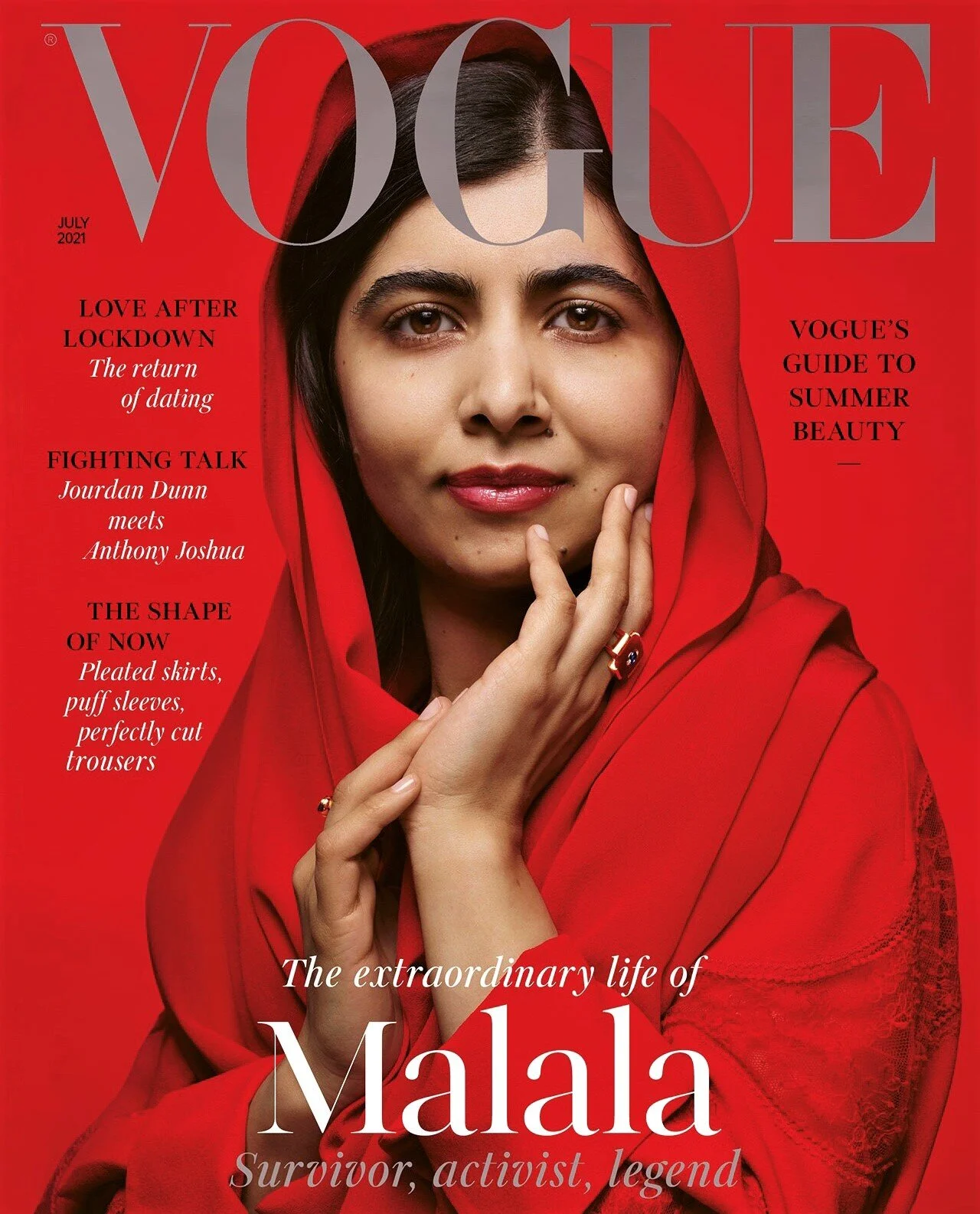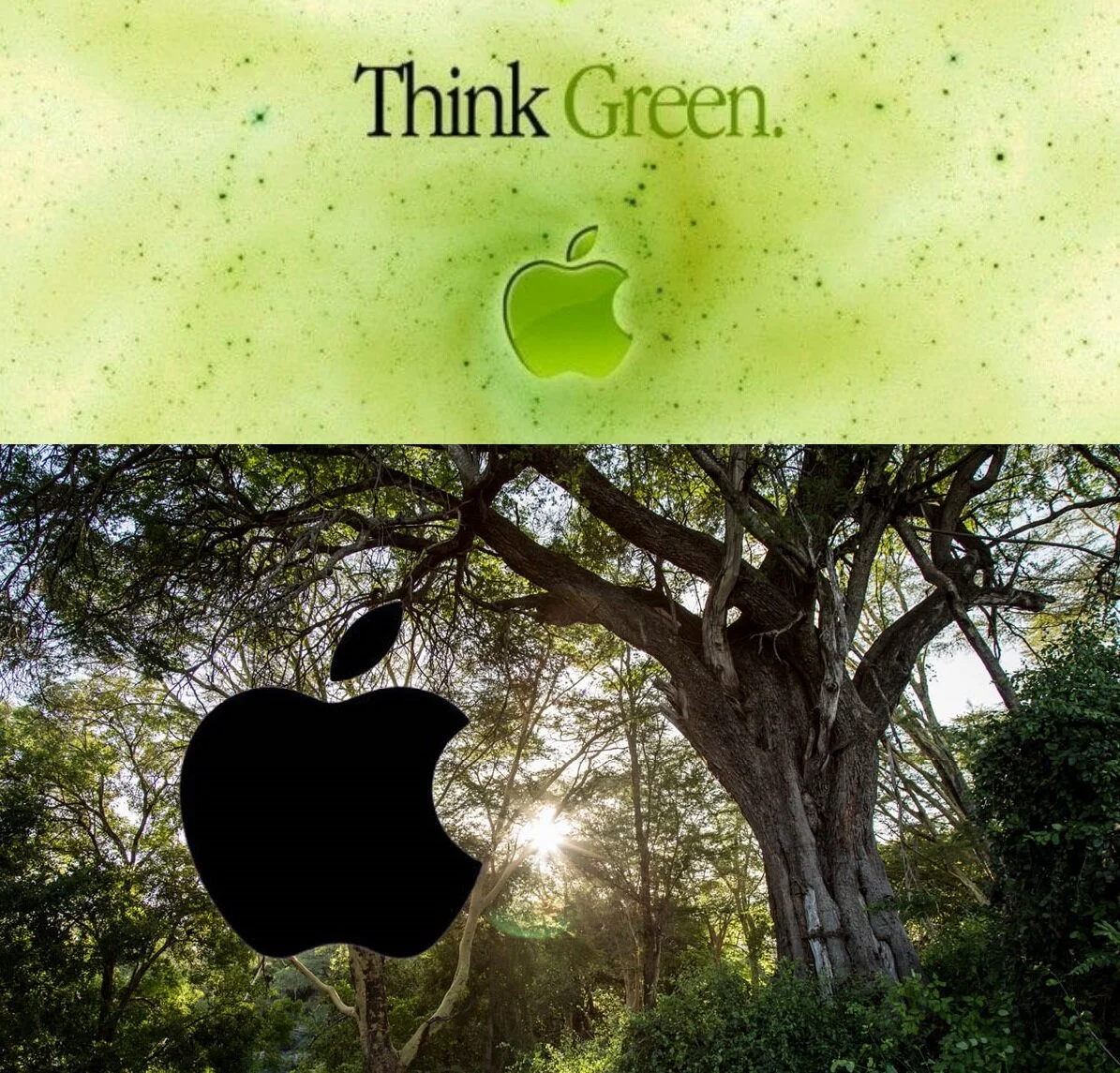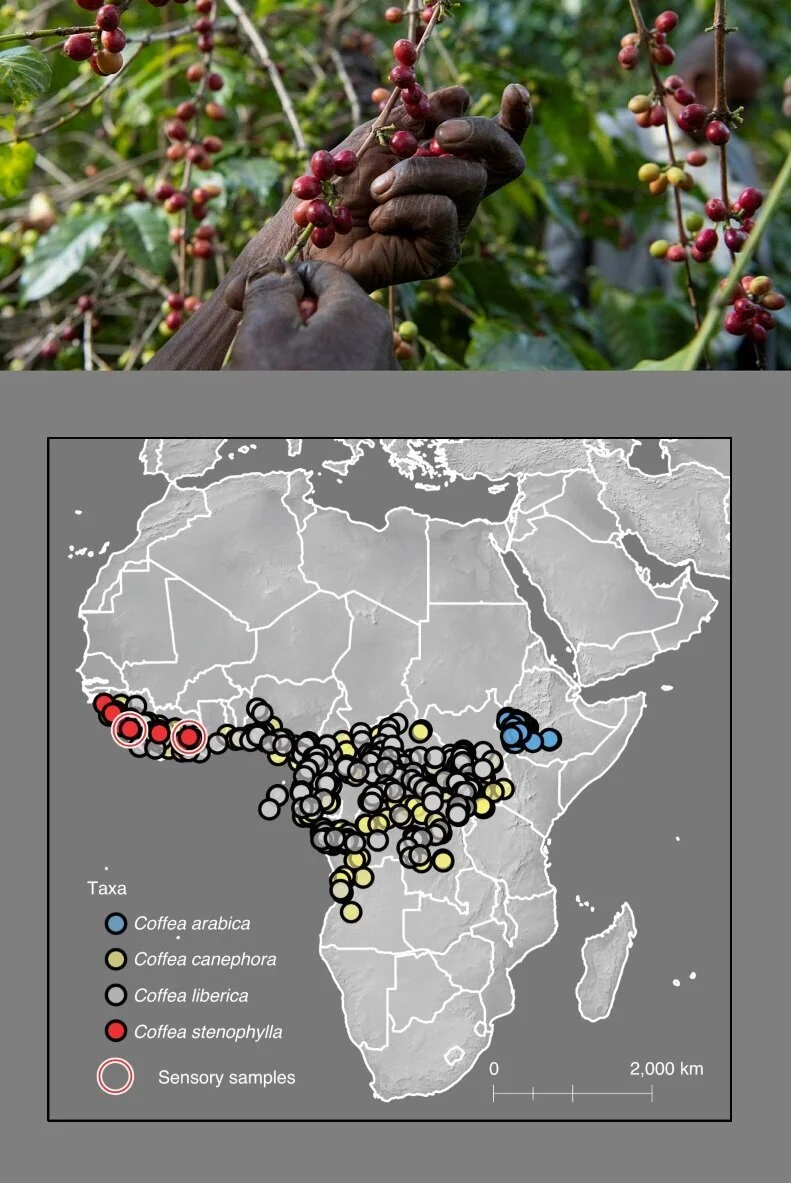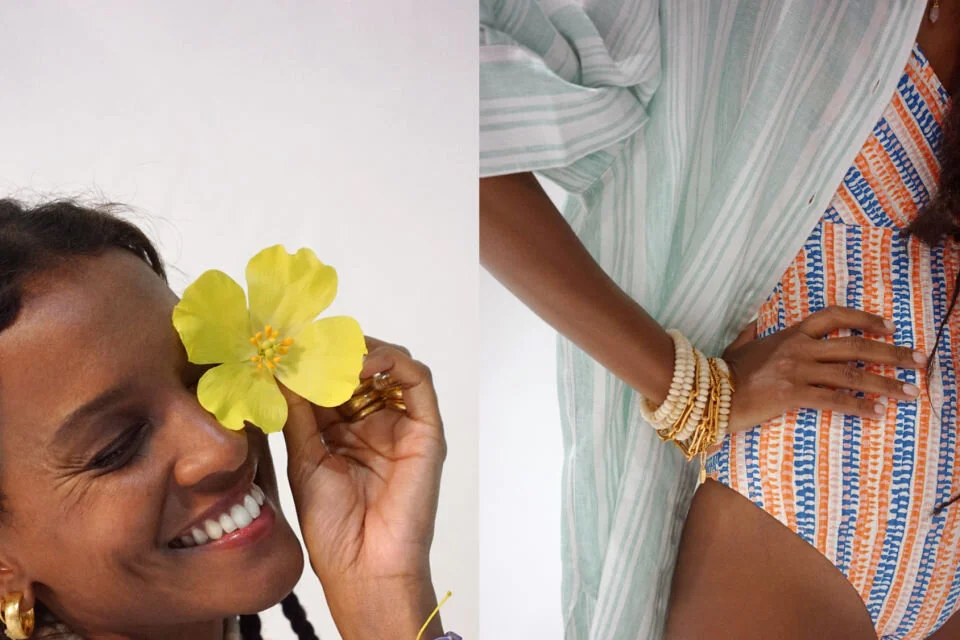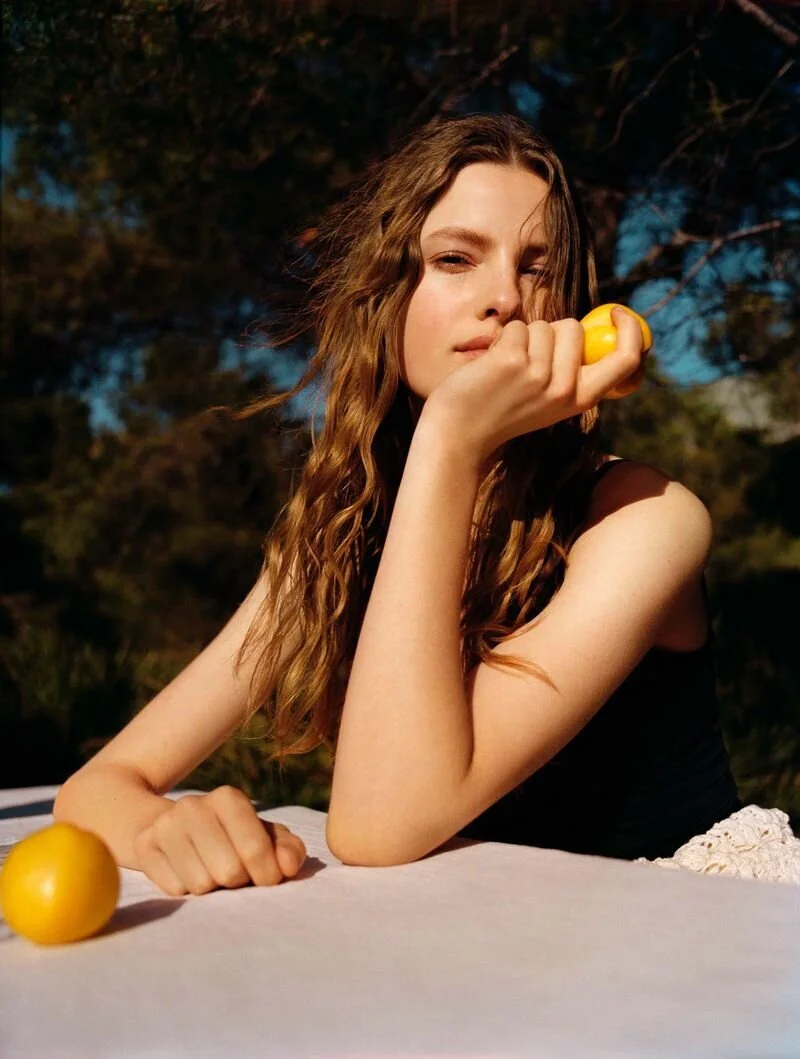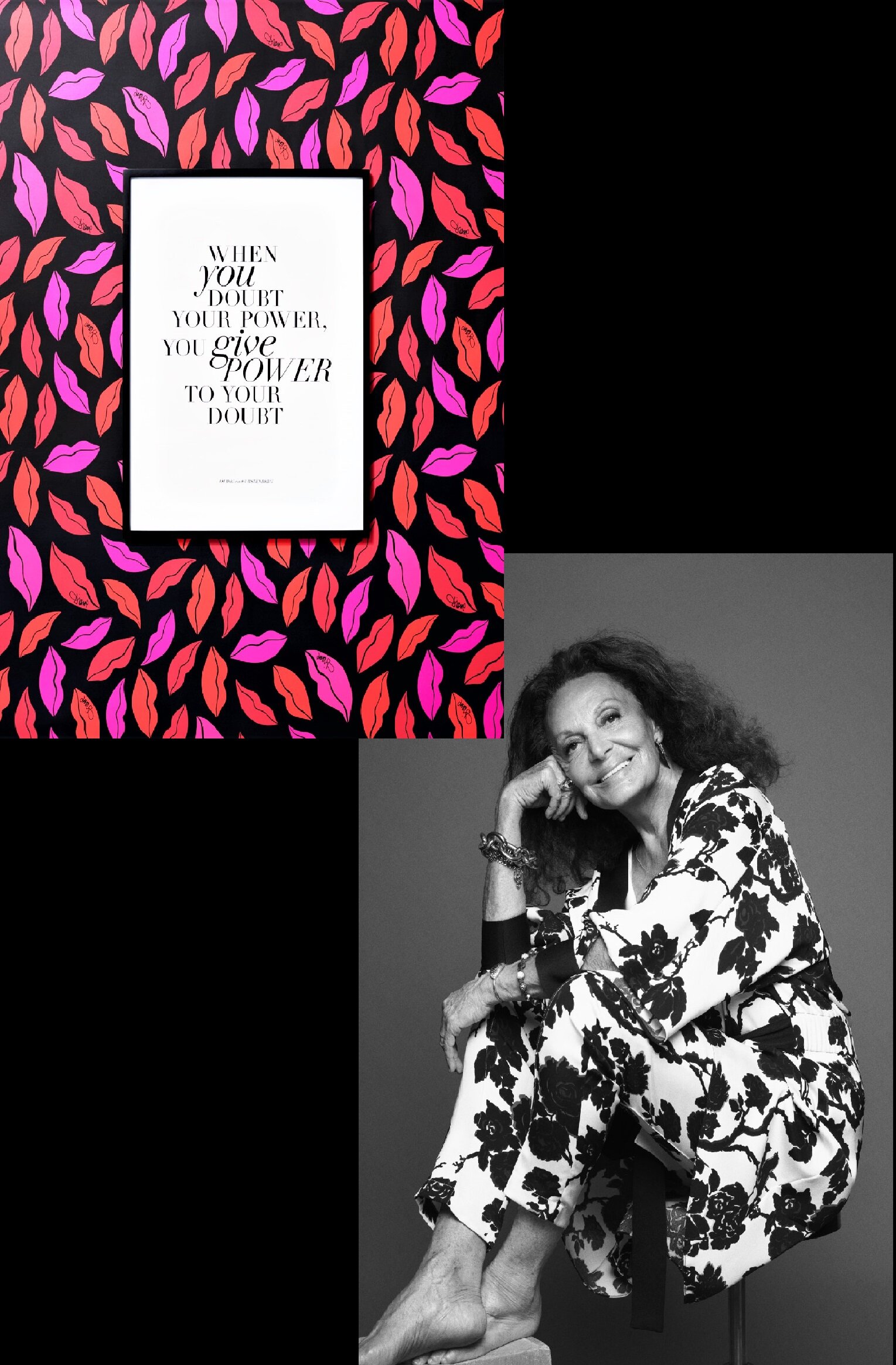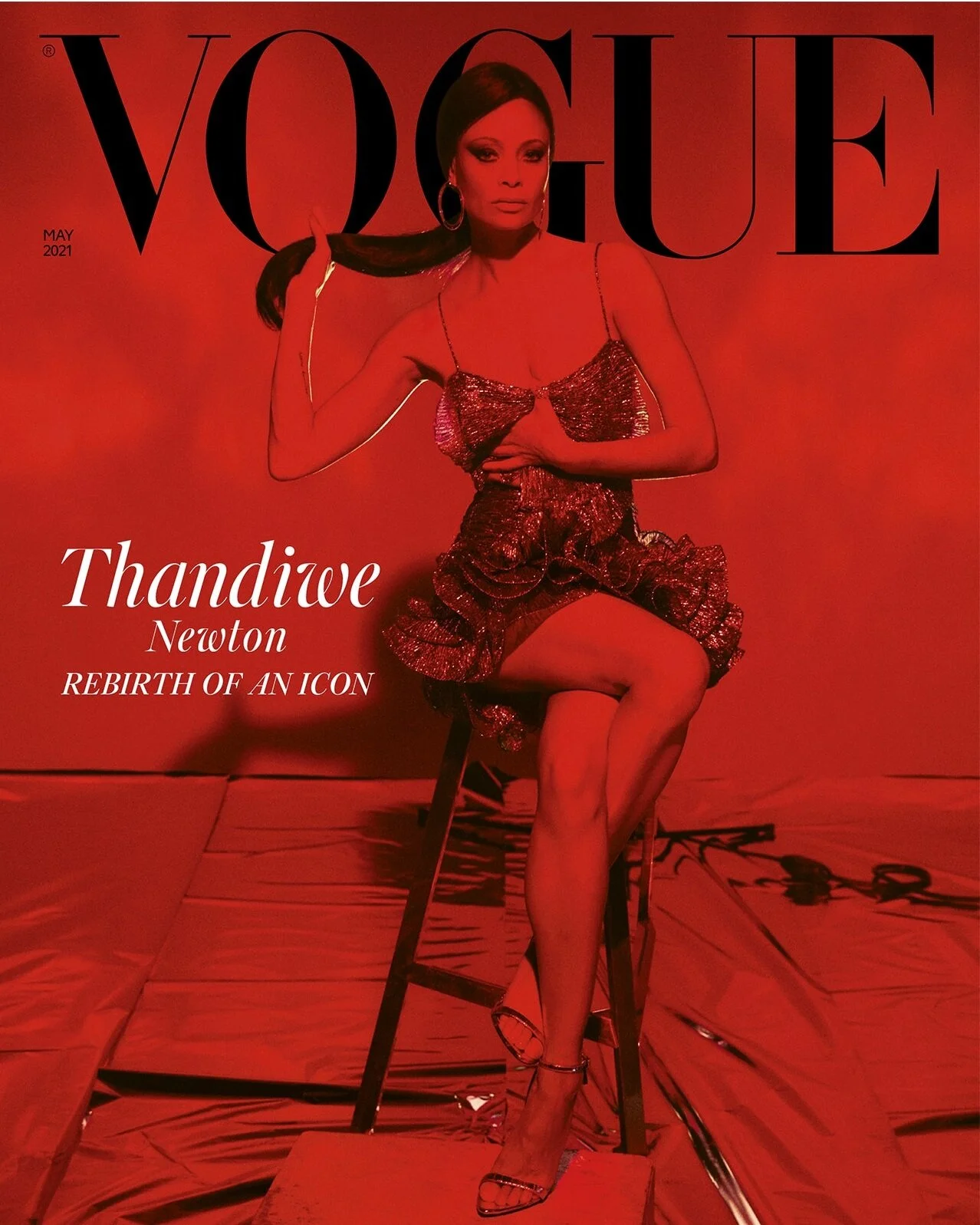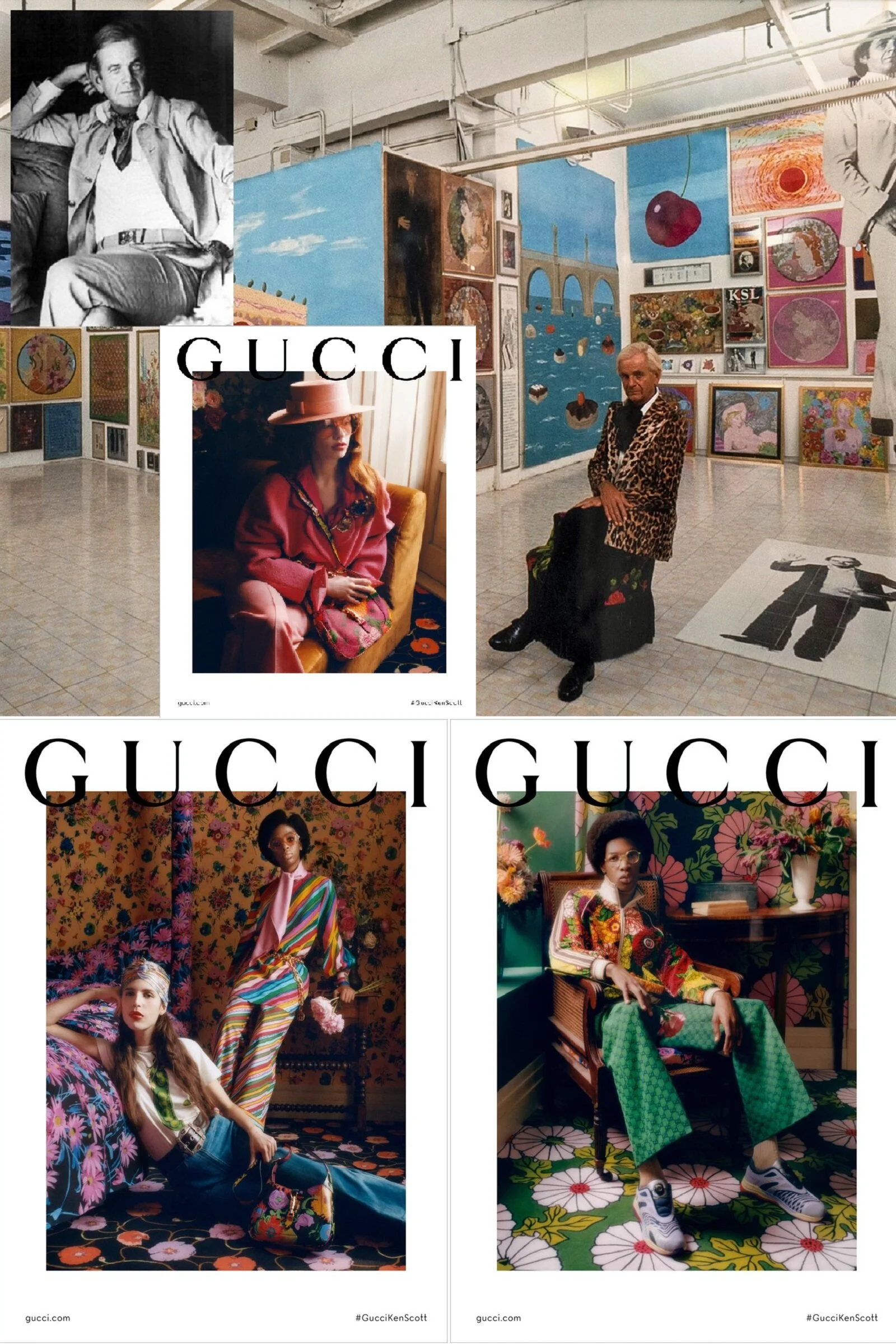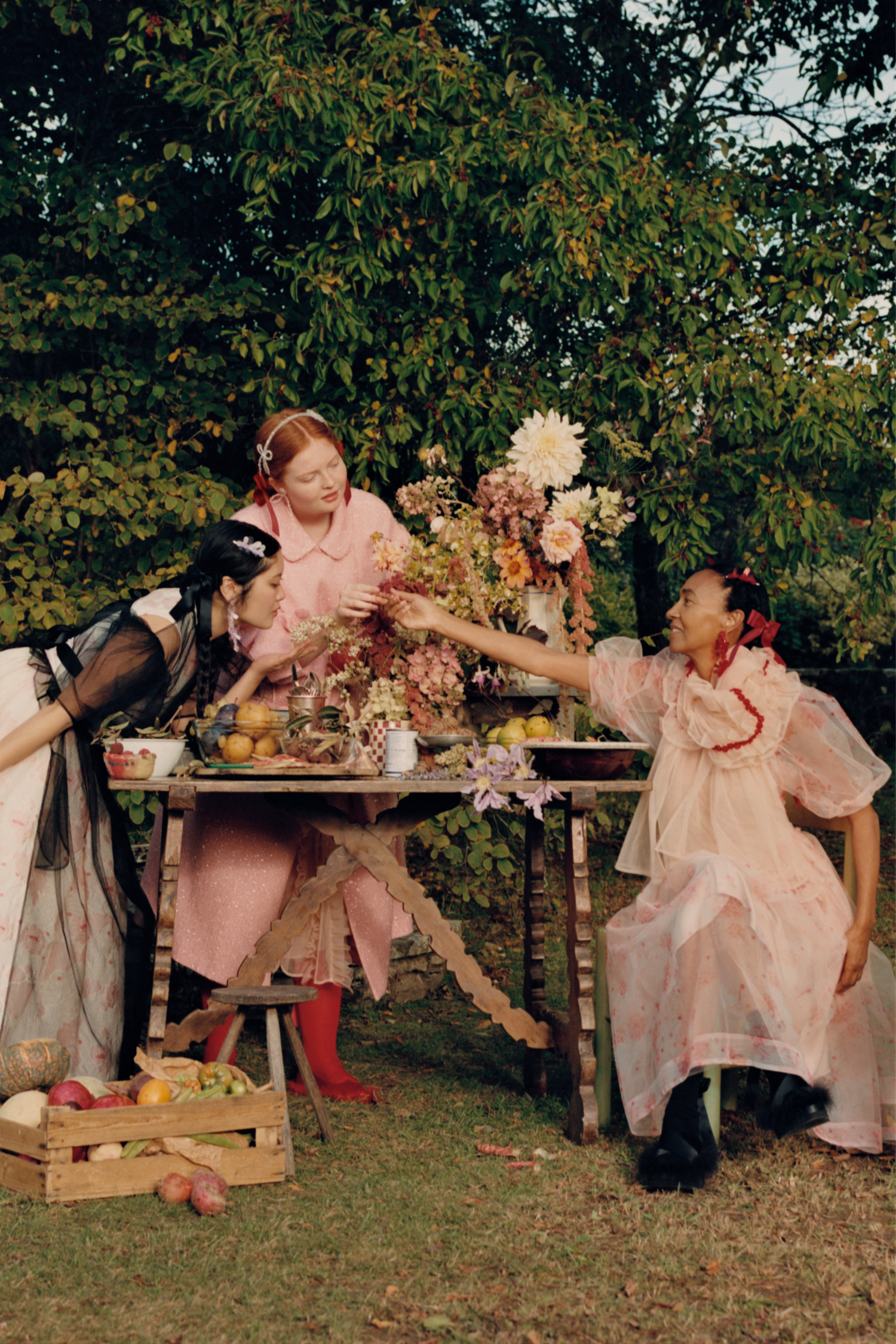Date Nights, Friendly Fruits and Life in the Garden of Egypt's Blue Lily Eden
/London Times writer Howard Marks, a self-described Mr Nice author, hedonist and ex-drug smuggler takes us to Egypt this morning, in search of the blue lily. Just between us, we’re going to smoke it.
Seriously now, do you think women are allowed in this place?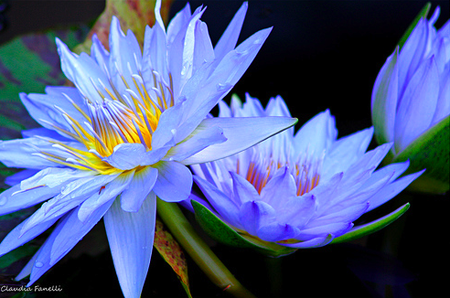 Blue Lily Water Trio via Señorashutterbug at FlickrI’m in high gear, drinking French Roast and eager to get on the road. Not so fast says Marks. Slow down and enjoy the scenery.
Blue Lily Water Trio via Señorashutterbug at FlickrI’m in high gear, drinking French Roast and eager to get on the road. Not so fast says Marks. Slow down and enjoy the scenery.
He’s right, of course. I’ve never been to Egypt and there’s no reason to rush through such grandeur in the cradle of ancient learning and a great civilization.
We arrive in Luxor, meeting George Feltham-Parish, who hands us a Stella beer once we clear customs. Thanks George.
Legend says that the god Osiris brought this beer to Egypt’s people as a medical treatment. A curative document dating from 1,600 BC lists over 100 prescriptions using beer as medicament. Luxor via Classic Travel Adventures blogThe Egyptians dead people’s souls were also honored with beer and food. “Here’s to your ghost” is a classic Egyptian’s toast. Not surprisingly, a woman — Isis, sister of Osiris — was the beer-brewing patroness in charge of the nectar.
Luxor via Classic Travel Adventures blogThe Egyptians dead people’s souls were also honored with beer and food. “Here’s to your ghost” is a classic Egyptian’s toast. Not surprisingly, a woman — Isis, sister of Osiris — was the beer-brewing patroness in charge of the nectar.
Googling my way off course, I’m surprised to discover that Muslims drink beer. I ask whether or not the Qur’an bans alcohol, and the answers are split 50/50 among so-called experts. No wonder I’m confused.
It appears that Stella is not in short supply in modern-day Egypt, although the government is in charge of monitoring its distribution.
A river is the soul of Luxor, dividing now and the ancient past. We turn from the dirty, noisy and overcrowded high-rise life of Luxor, driving into the west bank, home of the Valley of the Kings, the secret cemetery of the pharaohs.
 The Pyramids at Giza via Classic Travel Adventures blogPeace envelopes us in what Marks calls “a smothering blanket of silence” filled with ample activity.
The Pyramids at Giza via Classic Travel Adventures blogPeace envelopes us in what Marks calls “a smothering blanket of silence” filled with ample activity.
I smile over the date palms in his narrative, admitting that I’m totally corrupted by the juicy, succulent fruits, seduced by the sturdy tree shape with feather fronds as a symbol of lush sensuality. At heart I’m a naturalist, a woman who enjoys life under a shady date-tree more so than a private box at the polo club.
My ex-husband disagrees that I would not have been a good colonist. Driving with the top down on a balmy, picture-perfect summer night, he told me to stop being such an idealist, that I was most-likely married to a high-ranking governor of the British Empire in another life.
In fact, he continued, I was probably married to the largest exporter of slaves on the African continent. BG had a way of ruining perfect moments.
The date palm is mentioned more than any other fruit-bearing plant in the Qur’an. Throughout the month of Ramadan, dates are a common ingredient in the Muslim diet. 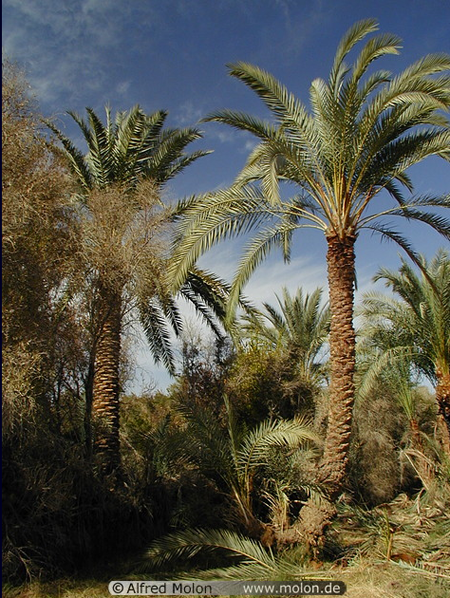 Egypt Farafra Oasis via Alfred MolonIn terms of nutrition for body and soul, succulent dates make a sensually sublime breakfast with banana, fruit, nuts and yoghurt. My love potions treat has me dreaming of living in a less violent, holistic, slow food world.
Egypt Farafra Oasis via Alfred MolonIn terms of nutrition for body and soul, succulent dates make a sensually sublime breakfast with banana, fruit, nuts and yoghurt. My love potions treat has me dreaming of living in a less violent, holistic, slow food world.
It’s also true I’ve been known to eat dates in bed and not alone. Blame my immorality on the Egyptians.
Marks writes there is no garish architecture on the west bank of Luxor, just clusters of date palms, orange trees and low shoebox houses. Despite the “smothering blanket of silence” there is ample activity, with “scores of donkey carts transporting everything from tomatoes to gas cylinders”.
“Come and say hello to the other guests,” George says.
They are all men, and I’m not certain this blue-lily experience is one for mixed company. I enter, hoping not to be thrown out. Come with me, please, dear friends. Perhaps there’s safety in numbers.
Wait, I will wear a hat … pretending to be a boy … and perhaps no one will notice. It’s a man’s fedora but pink and guaranteed to drive my doormen crazy with delight. In the land of blue lilies, my man’s hat will blend in beautifully, even if it lacks a certain testosterone-quality of masculine construction.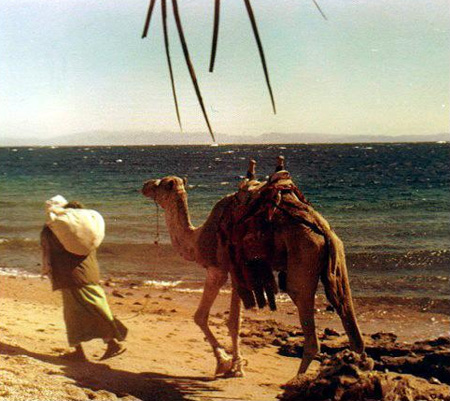
George promises us a broad range of experiences in Luxor, whatever we are seeking: the wisdom of the ancients; self-discovery in the desert; a hot-air balloon adventure or diving in the Red Sea. I’m feeling adventurous, imagining a trip with “Bedouin on camels or romance among the ruins”.
We’re off now, driving along the desert to Al Moudira, George’s favorite hotel. “Why?” I ask must we go to a hotel? “I thought we’re having a blue lily experience.”
Because this is a travel article, you silly woman, and take off that stupid hat. Those dreamy days are gone from earth; no more Garden of Eden and it’s all women’s fault.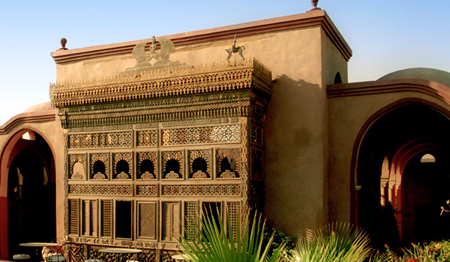 Hotel Al Moudira in Luxor, EgyptWe’re in good company, looking through the visitors’ book. Kate Moss and Mick Jagger just left Al Moudira. Wait a moment; Moss and Jagger weren’t together. Stop the presses. This splendid stop on our digital romp is owned by Zeina Aboukheir, aka “the boss” or “moudira” in Arabic. Zeina, who speaks French, English, Arabic and Italian grew up in Lebanon and lived in Tuscany for many years.
Hotel Al Moudira in Luxor, EgyptWe’re in good company, looking through the visitors’ book. Kate Moss and Mick Jagger just left Al Moudira. Wait a moment; Moss and Jagger weren’t together. Stop the presses. This splendid stop on our digital romp is owned by Zeina Aboukheir, aka “the boss” or “moudira” in Arabic. Zeina, who speaks French, English, Arabic and Italian grew up in Lebanon and lived in Tuscany for many years.
Our author directs us to giant coffee-table books lying around the reading lounges and libraries of Zeina’s dream hotel. Page after page of a great civilization pulls me into a tighter embrace.
Dare I note that I’ve read the novels of Naguib Mahfouz? I think it’s best if I say that I’ve never heard of the man or I’ll be blacklisted, too and hunted through the alleyways of lower Manhattan in our post-Sept. 11 world.
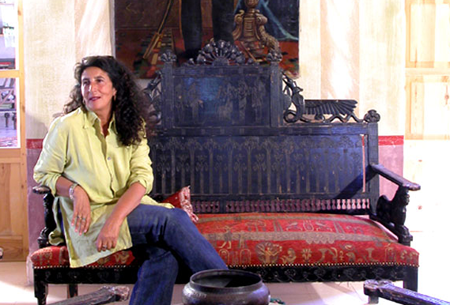 Zeina Aboukheir, owner of Hotel Al MoudiraIn Luxor my aphrodisiac is the blue lily and the ancient sensual wisdom of the altered consciousness. I’ve had too little of the blue stuff in my life but enough to understand its power.
Zeina Aboukheir, owner of Hotel Al MoudiraIn Luxor my aphrodisiac is the blue lily and the ancient sensual wisdom of the altered consciousness. I’ve had too little of the blue stuff in my life but enough to understand its power.
To me, mind-tripping is sacred and enlightening, not human depravity. Pleasure isn’t inherently corrupting when properly balanced against our responsibilities to the living.
About the color: in all honesty, blue is not my favorite shade, but perhaps I’ll feel differently in a day or two.
Coloured carvings of the blue lily and the green papyrus adorned the walls of tombs and temples found in both Upper and Lower Egypt. The hieroglyphic writing tells the story of unity. What a strange, antiquated idea in this part of the world. 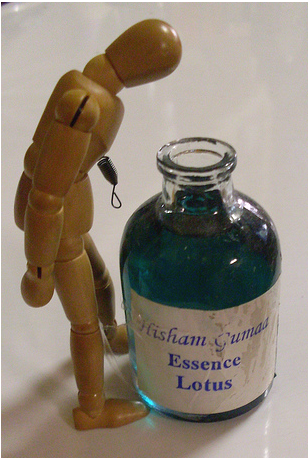 via smacss @ FlickrThe “lotus” depicted in the tomb paintings of ancient Egypt and found scattered upon the corpse of Tutankhamen when the tomb was opened in 1922 is also known as the ‘lily of the Nile’, and it is not a true lotus but a blue water lily Nymphaea caerulea. It is rumoured to contain apomorphine a drug that is said to have psychoactive properties.
via smacss @ FlickrThe “lotus” depicted in the tomb paintings of ancient Egypt and found scattered upon the corpse of Tutankhamen when the tomb was opened in 1922 is also known as the ‘lily of the Nile’, and it is not a true lotus but a blue water lily Nymphaea caerulea. It is rumoured to contain apomorphine a drug that is said to have psychoactive properties.
The hallucinations of great poets are forbidden now; intellect, sensuality and original thinking are deemed to be corrupting forces of nature and culture — woman stuff although gender relations were in far better balance in the days of gods and goddesses.
We learn that when the Romans conquered Egypt, they accidentally poisoned and wiped out the sacred blue lily. New breeds of fish killed the precious, hallucinogenic potion that unraveled human minds with spiritual wanderings into the meaning of life.
Coming from the Romans, these weren’t fundamentalist fish for sure. Even sensualists make mistakes in the grand scheme of life but like Ibrahim, who’s been quietly at our side in this little chat, the sensualist tries to make the world whole again.
Returning from Eritrea, where the Nile is born, Ibrahim has transplanted blue lilies into the ancient waters, breathing life into dead lily pods.
Howard indicates that we’re taking a short trip soon, a waterborn getaway in sumptuous style.
Private journeys into one’s psyche and spiritual soul are best taken away from authorities and modern-day morality police. Perhaps I can take my hat off after all.
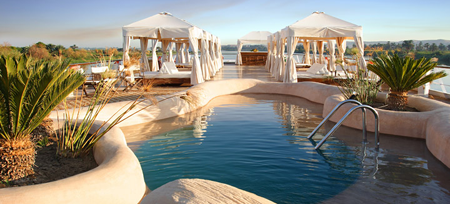 Abercrombie & Kent Sun Boat IIIFinally I’m at a loss for words, and Marks must do the talking. We’re boarding a spectacular small ship, the Sun Boat III, and I am feeling like a sun goddess, perhaps Isis herself. This serpent of a boat seduces me with polished wooden furniture and satin cushions of every size, shape and colour.
Abercrombie & Kent Sun Boat IIIFinally I’m at a loss for words, and Marks must do the talking. We’re boarding a spectacular small ship, the Sun Boat III, and I am feeling like a sun goddess, perhaps Isis herself. This serpent of a boat seduces me with polished wooden furniture and satin cushions of every size, shape and colour.
Can we agree that this is a womanly ship? Oh the stories I would write, drifting along the Nile.
Shakira announced this week that “libido is the engine of the world” and it seems that ancient Egyptians agreed, refusing to deny their humanity. Pictures, writings and religious beliefs make it clear that Ancient Egypt was a highly sexually charged society.
Not only the West corrupts; we learned from the masters, the deep thinkers about the meaning of existence. I know there was no concept of ‘self’ and ‘sin’ to speak of.
The patriarchal wisdom of morality and religion had not yet hit the airwaves.
Egyptians identified copulation with creation and rebirth, linking the sacred blue lily to fertility and sexuality. Each gender consumed it to promote desire, induce ecstatic states, and woo and attract the other. I don’t understand that if the civilization was so totally decadent, how did it produce such magnificence?
I’m inquisitive now, returning to the themes of my life’s inquiry.
Just how patriarchal a society was Egypt? What was the role of women in this society? Is my face covered or not, if I time-travel back to the time of King Tut? Is my value three-fifths of a man, or does that come later in history? Am I allowed to venture out into sunlight without a chaperone?
Just now, a sip of French Roast jolts me back to the Sun Boat III.
Our writer guide Howard Marks is on land, with the boat tacked for the night. George obliges us, making dinner of lamb twirling around a central spit of red-hot coals. I so adore rosemary and Google it back 3000 years to ancient Egypt where it travelled to the Greeks and Romans.
I believe trade flowed more freely in those years before the Middle East became such a hot zone of tempers and righteous convictions.
Ibrahim has soaked the sacred blue lily in wine for three weeks, making several sacred-lily joints now for a bit of calm in this other-worldly oasis.
Howard inhales, and we are off into his private hallucinations. Jealously, I tell you that we can’t come along. “Shhh. Don’t interrupt him.” For literary voyeurs, there are limits to our intellectual reveries, and we’ve just hit the proverbial wailing wall.
For Howard, it not a very pretty sight.
Howard’s hand is moving across the keyboard; let’s listen: I walked a few yards to the bank of the Nile, by then bright red and still except for sailing boats tacking in a hot, slow breeze. Eight camels with identical facial expressions suddenly crept up and quietly surrounded me. They looked like turkeys with swans’ necks. I tried to make friends, but they growled, groaned, glowered and gargled as if about to devour me.
And then: I kept seeing pharaohs, sphinxes and jackals carved into the mountains. But the camels had killed any aphrodisiac effect that the lily may have had, even though they wore what looked like Ancient Egyptian miniskirts.
And next: I was far too high to be brought down to earth by George’s logic. The Nile, full of giant frogs and spitting cobras, looked like blood. The darkness was so heavy that I could almost feel it. Jackals bayed from the mummy-like faces of the mountains. UFOs filled the star-sodden sky. Nevertheless, I felt ecstatic.
In my own blue lily trips, there were no spitting cobras, in fact no blood at all. Just a color panorama of red flowers in total darkness and the overpowering smell of fresh rain on a star-studded night.
In one of my most profound dreams, I was in a church and … wait, I’ll save this for next time. Now, I must pack for Tucson and Tombstone.
Contrary to the messages of agonizing bombs ripping through our world, it’s not our senses that corrupt. I’m a woman without nightmares and I assure you that Shakira’s right about libido being the engine of the world.
This is why people fear sensual energy in themselves.
Our senses engage us with each other, our planet and a spiritual universe, where competing Gods don’t fight to the finish, seeking to destroy each other in a war of righteousness.
Here at Anne of Carversville, we’re in a different life boat, drifting forward with an enlightened, purposeful sensuality that comprehends the depths of moral depravity around the world but finds it in guns, bombs and lashers for women, not blue lilies, jasmine tea and saffron.
Global logic has gone amuck and I beg that we will find some in Luxor, with the help of our ancient aphrodisiac.
My conscience has cleared in this past year. Since Mumbai, I’m positive that in spite of our grand imperfections, sensualists aren’t barbarians but instead the enlightened ones.
We’re Smart Sensuality nurturers, Green Beings gardeners in Eden wanting to recultivate blue lilies everywhere but Afghanistan. Poppies do no good in that country, after all these years.
There’s little hope of injecting soft harmony into the prevailing mindset, a place where God’s book supposedly says that a man can starve his wife if she doesn’t have sex with him. Frankly, it’s the Taliban’s sexual seduction techniques that are sorely lacking. Don’t worry everyone; I’m not so stupid as to take on the Taliban.
On the subject of what to do in Afghanistan, PBS recommends that farmers switch aphrodisiacs, to pomegranates, rather than poppies. The idea may appear a bit ditzy, but feminine logic often appears just that way at first glance.
In fact, there’s a strong argument being made by revisionist scholars that Eve ate not an apple, but a pomegranate. Let’s be innovative thinkers here, my dears. If Eve and her apple got us thrown out of the Garden of Eden, perhaps Anne and her writing about pomegranates will get us back in.
I’m now on record saying it’s a fight to the finish with these terrorist guys, but I come bearing friendly fruit, in the form of a peace offering. After all, it is Thanksgiving in America.
 Bridgepixing the Navajo Bridge, built 1929, over the Colorado River in Marble Canyon, east of the Grand Canyon. This historic bridge (on the right) is now a pedestrian only Footbridge after its twin (on the left) was built in 1995. Located near the site of the historic Lee’s Ferry, this bridge is listed on the National Register of Historic Places. Additional Bridge Photos and a Bridge Blog at www.Bridgepix.com.To celebrate turkey day, I’m off to the land of the Navajos, which was a matriarchal society before English settlers invited them to celebrate the bounty of America’s generous spirit of conquest. This reality of American goodwill reminds us that once again: good girls don’t finish first.
Bridgepixing the Navajo Bridge, built 1929, over the Colorado River in Marble Canyon, east of the Grand Canyon. This historic bridge (on the right) is now a pedestrian only Footbridge after its twin (on the left) was built in 1995. Located near the site of the historic Lee’s Ferry, this bridge is listed on the National Register of Historic Places. Additional Bridge Photos and a Bridge Blog at www.Bridgepix.com.To celebrate turkey day, I’m off to the land of the Navajos, which was a matriarchal society before English settlers invited them to celebrate the bounty of America’s generous spirit of conquest. This reality of American goodwill reminds us that once again: good girls don’t finish first.
Any woman who believes good girls do finish first is a bigger fool than I am, unless you’re Sarah Jessica Parker. Anne



